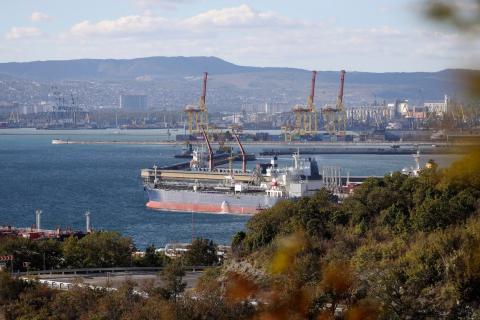


U.S. President Donald Trump is pressing China and India to stop buying oil from Russia and to end their role in helping finance the Kremlin’s war against Ukraine.
Trump is raising the issue as he seeks to pressure Russian President Vladimir Putin to agree to a cease-fire.
However, cheap Russian oil benefits refineries in those countries and meets their energy needs, so they show no intention of pulling back.
Three Major Buyers of Russian Oil
China, India and Turkey have become the main destinations for oil that once went to the European Union. The decision by Brussels to boycott most Russian crude shipped by sea starting in January 2023 triggered a massive shift in oil flows from Europe to Asia.
Since the EU embargo, China has been the leading buyer of Russian energy, with approximately 219.5 billion dollars in oil, gas and coal purchases, followed by India with 133.4 billion and Turkey with 90.3 billion. Before Russia’s invasion of Ukraine, India imported relatively little Russian oil.
Hungary imports some Russian oil through a pipeline. Although it is an EU member, Hungarian Prime Minister Viktor Orbán has been critical of sanctions against Moscow.
The Appeal of Cheaper Oil
One of the main reasons is price. Since Russian oil trades at a lower price than Brent, the international benchmark, refineries can boost their profit margins when converting crude into usable products such as diesel.
Russia Earns Billions Despite Sanctions
The Kyiv School of Economics says Russia collected 12.6 billion dollars from oil sales in June. Moscow continues to earn substantial sums even though the Group of Seven leading industrialized nations has sought to curb its profits by imposing a price cap on oil. The cap is meant to be enforced by requiring shipping and insurance companies to refuse to handle cargoes priced above that limit. Russia has largely managed to evade the restriction by moving oil through a so-called shadow fleet of aging tankers and by using insurers and firms based in countries that do not apply the sanctions.
Russian oil exporters are expected to bring in 153 billion dollars this year, according to the Kyiv institute. Fossil fuels are the Kremlin’s largest source of budget revenue. Oil and gas exports support the value of the ruble and enable Moscow to buy goods from other countries, including weapons and parts for them.
This story was translated from English by an AP editor with the help of a generative artificial intelligence tool.